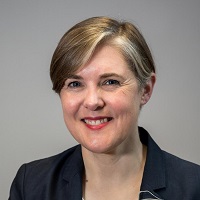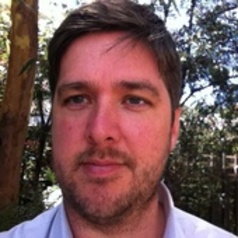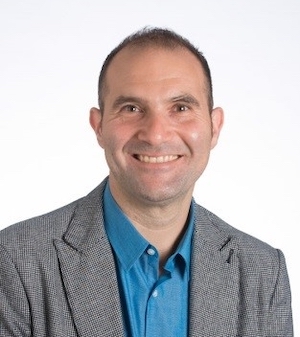Recording available - Energy Futures Public Forum: Dialling Down the Gas

How do we electrify households and businesses in a fair and cost-effective way?
The Victorian Government's decision to ban gas connections in new homes and government buildings from 2024 has brought the transition from gas to electricity firmly into the spotlight, raising several important questions, not least among them being: is this the end of the gas-fired wok?
On 30 August 2023, the Melbourne Energy Institute and Grattan Institute hosted a public forum that addressed this question and others, including:
- What are the economic and greenhouse gas costs and benefits of the switch?
- Which households face the most significant barriers to electrify and how do we ensure that lower-income households are not left behind with soaring gas bills?
- What support is there for diverse dwelling types and ownership structures?
- What measures need to be taken to address the complexities of gas distribution network stranding and who bears the responsibility and cost?
The expert panel included Alison Reeve, Energy and Climate Change Deputy Program Director at the Grattan Institute, Dr. Sangeetha Chandrashekeran, Senior Research Fellow Australian Research Council Centre of Excellence for Children and Families Over the Lifecourse, and Damian Sullivan, Principal of Climate Change and Energy at the Brotherhood of St. Laurence. The panel discussion and audience Q&A was moderated by Professor Pierluigi Mancarella, Program Leader, Energy Systems at the MEI.
With approximately five million Australian households currently reliant on the gas network, this change is just one of the many that may be required for Australia to achieve its emissions targets.
RECORDING AND SLIDES
PANELLISTS

Alison Reeve
Deputy Director, Energy and Climate Change Program
Grattan Institute
Alison Reeve is the Climate Change and Energy Deputy Program Director at Grattan Institute. She has two decades of experience in climate change, clean energy policy, and technology, in the private, public, academic, and not-for-profit sectors.
Alison was previously the General Manager of Project Delivery at the Australian Renewable Energy Agency and a Visiting Fellow at the Australian National University. She led development of Australia’s National Hydrogen Strategy in 2019, as well as other Commonwealth energy and climate initiatives.
Alison has a Bachelor of Engineering from the University of Queensland and a Masters of Public Policy with distinction from the Australian National University.

Dr Sangeetha Chandrashekeran
Senior Research Fellow
Centre of Excellence on Children and Families Over the Lifecourse, and the Indigenous Knowledge Institute at the University of Melbourne
Sangeetha Chandrashekeran is a Senior Research Fellow in the ARC Centre of Excellence on Children and Families Over the Lifecourse, and the Indigenous Knowledge Institute, at the University of Melbourne.
Sangeetha is an economic geographer with a focus on the political economic dimensions of environmental change. Her research focuses on the role of the state, and the equity and distributive aspects of the energy transition underway. She has published on the evolution of demand management; marketisation and social equity and environmental outcomes; metering roll-outs and consumer/citizen benefits.
Sangeetha works with consumer welfare organisations such as Brotherhood of St Laurence and St Vincent de Paul on a just transition. She also works with First Nations' Traditional Owners on decolonisation, decarbonisation and water rights. Prior to undertaking her PhD, Sangeetha worked in Commonwealth climate change and energy policy.

Damian Sullivan
Principal, Climate Change and Energy
Brotherhood of St. Laurence
Damian Sullivan is currently Acting Director in the Social Policy and Research Centre at the Brotherhood of St. Laurence and leads the Climate Change and Energy team there. Damian has substantial experience in policy, research and innovative pilots across energy affordability, energy efficiency, and climate change, with a focus on social impacts. He is passionate about working with communities facing disadvantage to seize the opportunities from a transition to a low-carbon economy.
MODERATOR

Professor Pierluigi Mancarella
Energy System Program Leader
Melbourne Energy Institute
Pierluigi Mancarella is Chair Professor of Electrical Power Systems at the University of Melbourne, Australia, and Professor of Smart Energy Systems at the University of Manchester, UK. His key research interests include techno-economic modelling and analysis of multi-energy systems, grid integration of renewables and distributed energy resources, energy infrastructure planning under uncertainty, and security, reliability, and resilience of low-carbon networks.
Pierluigi is the Energy Systems Program Leader at the Melbourne Energy Institute, an IEEE (Institute of Electrical and Electronics Engineers) Power and Energy Society Distinguished Lecturer, the Convenor of the CIGRE (International Council of Large Electric Systems) C6/C2.34 Working Group on Flexibility Provision from Distributed Energy Resources, holds the 2017 veski innovation fellowship for his work on urban-scale virtual power plants, and is a recipient of the international Newton Prize 2018 for his work on power system resilience in Chile. He is author of several books and over 300 research papers and reports, and is a journal editor of the IEEE Transactions on Power Systems, the IEEE Transactions on Smart Grid, and Oxford Open Energy.
In the past few years, Pierluigi has supported the Finkel Review panel, the Australian Energy Market Operator, the Australian Energy Market Commission, and the Australian Energy Regulator on relevant research and consultancy projects on power system security, reliability, and resilience, and has led and been involved in several projects via the Australian Renewable Energy Agency and Cooperative Research Centres.